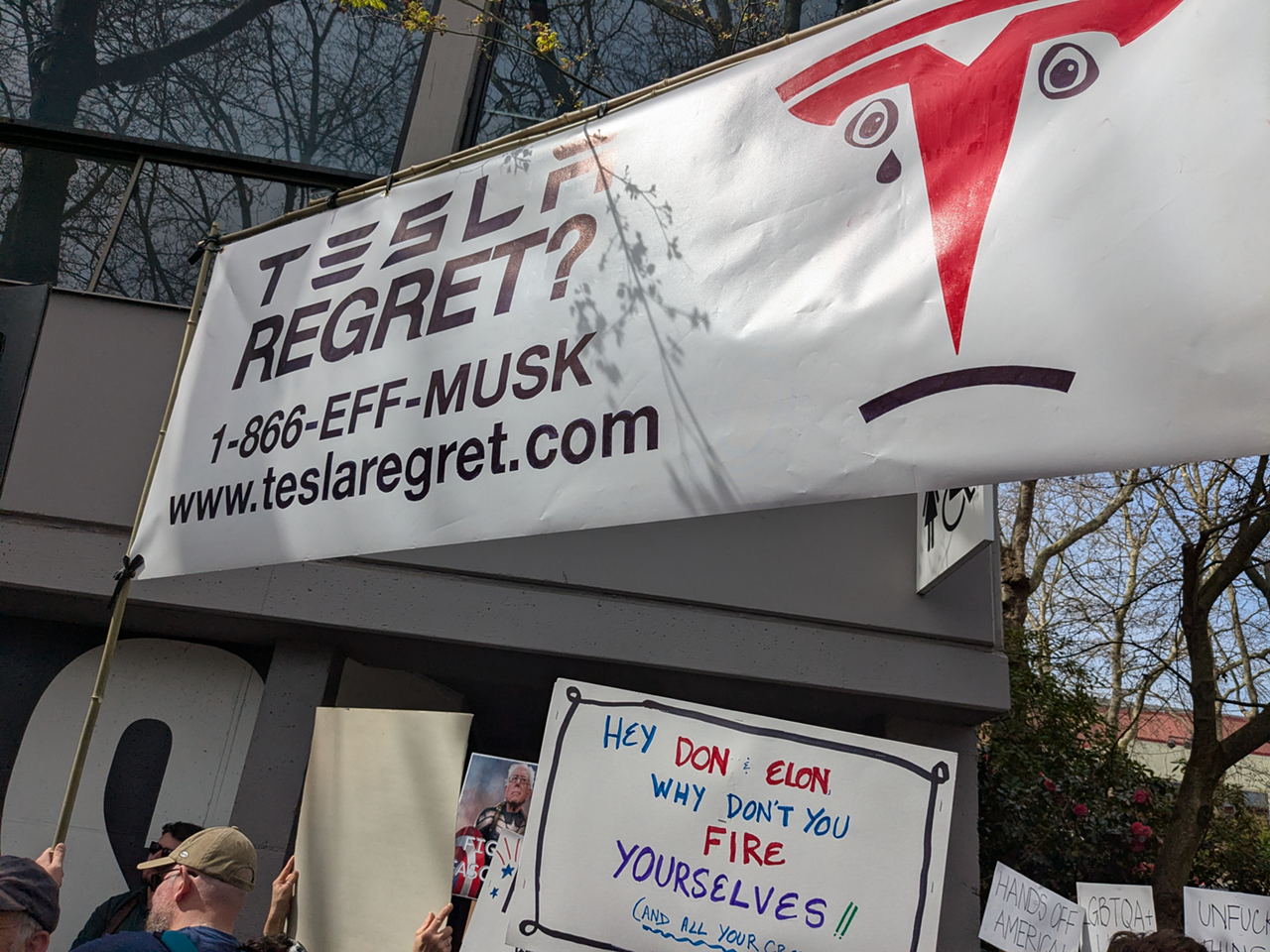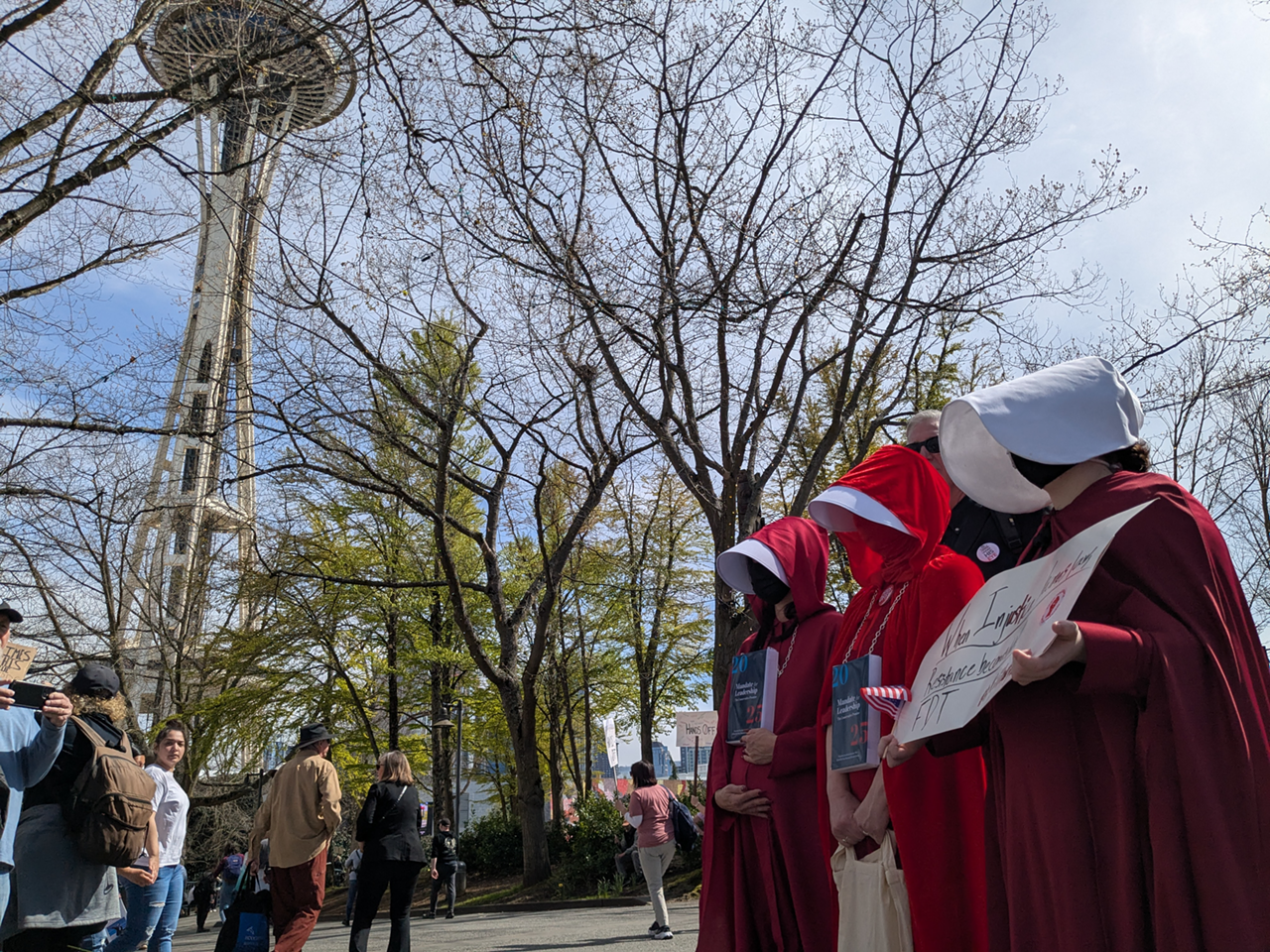The Stranger Presents: The 2025 Undisputable Champions of Comedy!, Saturday, April 5 at Washington Hall.
by Megan Seling
On Saturday, April 5, some of Seattle’s funniest comedians will take the stage as part of The Stranger’s annual Undisputable Champions of Comedy showcase. It’ll be hilarious! The lineup was curated with help from everyone’s comedy bestie, Emmett Montgomery, co-host of Joketellers Union at Clock-Out Lounge and purveyor of all things delightfully weird. And this year’s lineup is stacked with talent, from a local comedy legend who once won over a crowd of bikers at an Aurora bar in the ’80s to a comic who uses laughter as a way to deal with grief. We even have a bunny and a fundamentalist Christian pastor on the bill! It’s gonna be great.
Speaking of the fundamentalist Christian pastor, meet the hilarious Andrew Frank! They’ll be joining our Champions of Comedy lineup in character as Pastor Frank, a God-fearing, woman-controlling, Bible-loving preacher hoping to spread the gospel to evil Seattleites. There will also be music! Read on to learn more about how Andrew developed their surprising approach to stand-up.
Describe your comedy in five words.
Queer, ecstatic, playful, radiant, JOKES!
What’s the first thing you did when you found out you were chosen as one of The Stranger’s Champions of Comedy?
I reached out to my friend, the very talented Spencer Earl, to see if he would provide musical accompaniment on the piano, synth, and vocoder. He said yes, and I can’t wait.
You do stand-up as yourself but also sometimes perform as a character, a fundamentalist pastor. Can you tell us who we’ll be seeing at the showcase?
This set will be performed in character as Pastor Frank. Last August, I went to the Edinburgh Fringe Festival and delivered my one-hour “sermon” for 25 consecutive nights. The creative journey of building this character and this show has been one of the greatest joys of my life, and I think it will be so fun and meaningful to share it with a packed theater in the city I love and call home.
View this post on Instagram
I’d imagine your style of comedy, which is inspired by your upbringing in the Christian fundamentalist community, can be somewhat cathartic or therapeutic for people who’ve experienced some of that same trauma. Have you found that to be true?
Absolutely. There is healing and transformative power in storytelling, play, and the communal experience of humor. Especially humor that helps us untangle indoctrination, repression, and all the complicated feelings and memories of time spent in church and school. I love telling my jokes, and I love the vantage point from the stage where I get to see everyone’s faces during all the laughter. I get to see how it moves through all the bodies in the crowd. It’s beautiful.
Where is your favorite place to see comedy in Seattle right now?
I teach an Intro to Stand Up course at Laughs Comedy Club in the U District, and I really enjoy watching all the new comics. The first week, I just ask them questions while they stand onstage, and we get a glimpse of their personality and their life story.
Then, over the next four weeks, they try out material, and I get to witness the growth of the jokes. I get to see everybody grow their sense of self and their sense of play.
The final night of the semester is the graduation show, and it’s so incredible to watch each comic have their moment to shine in front of their friends, family, and classmates. The laughter feels really special on those shows, and it means the world to me to see each comic have a euphoric night onstage early in their stand-up journey.
The Stranger Presents: The 2025 Undisputable Champions of Comedy!, Sat April 5, Washington Hall, $25, 21+. Tickets available here.
The Stranger

























